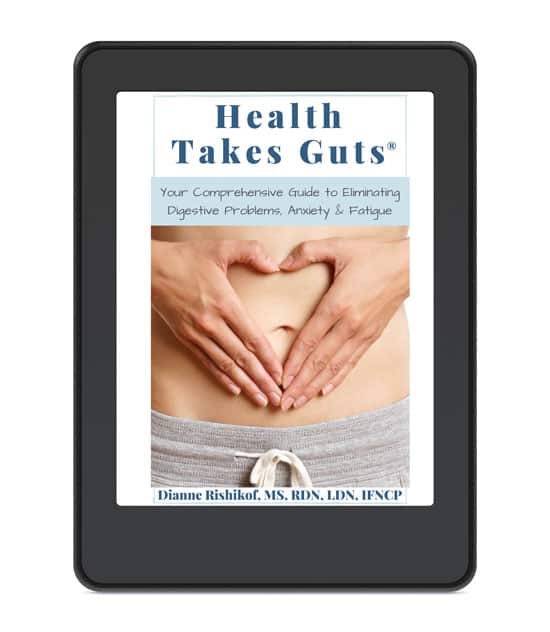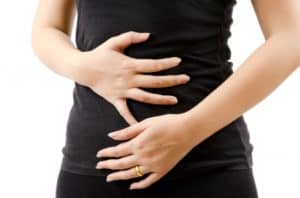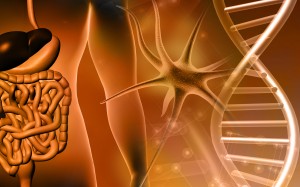As promised, here is the second half of the introduction to my eBook. If you missed the first half, check it out here.
Bloating, diarrhea, constipation, fatigue, insomnia, anxiety, depression, pain (anywhere in body), skin rashes, hormone imbalances, and brain fog are symptoms. A symptom is an indication that something is going on in the body. A symptom is not the answer as to what is going on, it is a clue. Getting a prescription to dampen these symptoms doesn’t fix the reason why the symptoms are happening. That is like clearing smoke out of a burning room without putting out the fire.
Doesn’t putting out the fire sound like a better idea?
Well, that’s what this book is all about—resolving the problems at the root of your symptoms.
And what’s the root of most health problems? The gut.
Why is the gut so important?
We have an estimated 100 trillion microbes (microorganisms) living in our gut. Ideally, most of these microbes are beneficial, there is lots of diversity (different types of bacteria), and no overgrowth of pathogens (really bad bugs). These microbes are mostly bacteria, but yeast and viruses are present too. Some of these microbes have health benefits for the host (that’s you), some cause health problems, and some don’t do either. This ecosystem is called our microbiome, and when our microbiome is out of balance, problems will emerge. Unfortunately, most of us have too many pathogens, not enough beneficial microbes, and not enough diversity.
What’s important to realize about these microbes is that they run the show. They participate in or control all of our bodily functions, including:
- nutrient digestion and absorption
- protecting the interior lining of the digestive tract
- how hungry or full we feel
- what foods we crave
- how well we utilize calories (metabolism)
- how we detox
- inflammation levels
- how much neurotransmitters (brain chemicals) we make
- our weight
- our mood
- our behavior
- our ability to fight germs
- how well we can focus
- how tired we are
- how our genes are expressed
The research on how these gut microbes affect illness is overwhelming. It is hard to find a medical condition for which the microbiome is NOT the underlying issue. Below is a list to illustrate this point.
Symptoms and diseases that are caused by or linked to an imbalanced microbiome: (and this is not even a complete list)
- Bloating
- Distension
- Belching
- Gas
- Heartburn, reflux, gastroesophageal reflux disease (GERD)
- Diarrhea
- Constipation
- Pain and cramps
- Lack of energy
- Headaches and migraines
- Frequent colds or illness
- Memory problems
- Joint pain
- Bad breath
- Hormone imbalances
- Acne
- Dizziness
- Insomnia
- Stuffy nose
- Inability to lose weight
- Irritable bowel syndrome (IBS)
- Small intestinal bacterial overgrowth (SIBO)
- Inflammatory bowel disease: Crohn’s and ulcerative colitis
- Celiac disease
- Multiple sclerosis
- Rheumatoid arthritis
- Lupus
- Parkinson’s disease
- Alzheimer’s disease
- Arthritis
- Anxiety
- Depression
- Attention deficit hyperactivity disorder (ADHD/ADD)
- Autism
- Asthma
- Allergies
- Tantrums in toddlers
- Behavior problems in older kids
- Chronic fatigue syndrome
- Fibromyalgia
- Eczema
- Psoriasis
- Cancer
- Diabetes (both types)
- Heart disease
- Hypothyroid
- Hashimoto’s disease
- Grave’s disease
- Polycystic ovary syndrome (PCOS)
- Endometriosis
- Premenstrual syndrome (PMS)
- Overweight
- Obesity
The influence that gut microbes have cannot be overstated. They are the root cause and solution for most health troubles. They are the answer.
Take IBS as an example. Irritable bowel syndrome affects 10-20% of the population. It is a collection of symptoms, such as diarrhea, constipation, bloating, and pain. When a patient presents these symptoms, a doctor will order conventional tests for all the diseases that might cause these symptoms. If all the tests come back negative, and therefore diseases are ruled out, the patient is diagnosed with IBS. It is a diagnosis of exclusion. It is the name for the bucket of symptoms. Often patients are told there is nothing wrong with them and are sent on their merry way. Sometimes prescriptions are given to deal with diarrhea, spasms, and motility issues, but these are merely bandages. IBS is an awful thing to live with. The hopelessness that comes with the idea that there is no treatment or cure is almost too much to bear. Well, guess what’s really going on with IBS? It is the result of gut bacteria imbalance, leaky gut, a hypersensitive gut-brain axis, and food sensitivities/intolerances. These are all things I cover in great detail in this book. If these things are addressed, IBS can be resolved! I resolve my clients’ IBS every day. There is hope!
Let’s look at another example: Celiac disease, a condition where the intestines are completely damaged from eating gluten. For this condition doctors will indeed say that food matters. They tell their patients to stop eating gluten and send them on their merry way. Now, giving up gluten is an absolutely necessary first step, but it isn’t the end of the story. We now know, due to research, that gut bacteria cause celiac in the first place, and these need to be killed and replaced with beneficial microbes. Also, the damage to the lining of the gut needs to be healed (no small feat) and nutrients need to be replenished.
My eBook is intended to give you hope and a new perspective on your health. It is full of crucial information to guide you in healing your gut, and thus healing every condition on the list above.




